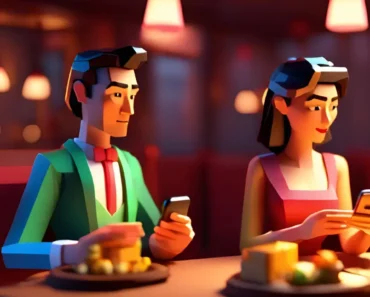Can AI Replace Human Connection in Relationship? Exploring the Future of Emotional Bonds. This guide delves into the evolving landscape of artificial intelligence in mental health, examining its potential to support relationship well-being, while also highlighting its limitations compared to human connection.
The Rise of AI in Mental Health Support: A New Frontier
The field of mental health is experiencing a significant shift with the advent of artificial intelligence. AI companions, often in the form of chatbots or interactive applications, offer a new avenue for support. These digital tools aim to provide accessible, immediate, and sometimes personalized assistance for various psychological concerns. Their emergence reflects a growing demand for mental health resources that overcome barriers like cost, stigma, and availability.
Initially, AI services focused on general well-being, stress management, or anxiety reduction. They often employed cognitive behavioral therapy (CBT) techniques through guided exercises and structured conversations. Their appeal lies in their 24/7 availability and the anonymity they offer. Users can engage with them without fear of judgment. This makes mental health support seem less daunting for many individuals.
The expansion of AI into more complex areas, including relationship dynamics, raises important questions. Can these non-human entities truly understand the intricacies of human connection? Can AI Replace Human Connection in Relationship? Can they effectively mediate conflicts or foster empathy between partners? Exploring these questions is crucial for understanding the evolving role of AI in our personal lives.
How AI Aims to Mimic Human Connection: Current Capabilities
AI offers specific advantages that make it a compelling option for initial or supplementary support in addressing relationship issues. Its methods often rely on structured approaches, attempting to simulate aspects of human interaction.
Personalized Interactions: Learning and Adapting
Advanced AI models learn from user input. They adapt responses over time, creating a seemingly personalized interaction. This can involve remembering past conversations, understanding preferences, and tailoring advice to individual needs. The AI’s ability to process vast amounts of data allows it to identify patterns and offer relevant suggestions, mimicking a sense of understanding. This personalization is a key feature in how AI attempts to answer, Can AI Replace Human Connection in Relationship?
This adaptive learning creates a feeling of being uniquely attended to. It can make users feel heard and understood on a superficial level.
Emotional Support and Listening: A Digital Ear
AI companions can provide a non-judgmental listening ear. Users can express their thoughts and feelings without fear of criticism or burdening another person. The AI can respond with empathetic language, validate emotions, and offer structured exercises for processing feelings. This immediate and always-available support can be comforting, especially in moments of distress or loneliness.
This offers a readily accessible outlet for emotional expression, filling a gap for those who lack immediate human support.
Accessibility and Anonymity: Lowering Barriers
One of the most significant advantages of AI for mental health is its unparalleled accessibility and affordability. AI-powered applications often come with a low subscription fee, or even offer free basic versions. They are available on demand, anytime, anywhere. This removes financial and logistical barriers, allowing more individuals to seek help for relationship concerns without the stigma of traditional therapy.
This ease of access encourages more people to engage with support tools, fostering self-reflection on relationship dynamics. It helps break down initial hesitations.
The Unbridgeable Gap: Why AI Cannot Replace Human Connection in Relationship
Despite its potential, AI faces fundamental limitations when addressing the intricate, often deeply emotional, challenges of human relationships. These concerns highlight where human intervention remains indispensable. This answers the question: Can AI Replace Human Connection in Relationship?
Lack of Genuine Empathy and Lived Experience
AI, by its very nature, lacks genuine empathy, intuition, and the ability to understand complex human nuances. It does not possess consciousness, emotions, or lived experiences. It cannot truly feel joy, pain, or the subtle complexities of human love and loss. Relationships thrive on shared experience, emotional connection, and the intricate dance of human interaction. An AI, no matter how advanced, cannot truly replicate the depth of human understanding required for complex emotional or relational issues. This is a core reason why AI cannot replace human connection in relationship.
Absence of Physicality and Shared Reality
Human relationships involve physical presence, touch, and shared real-world experiences. AI exists only in the digital realm. It cannot offer a comforting hug, share a meal, or participate in the myriad spontaneous, physical interactions that build intimacy. The lack of physical sensation and shared reality remains a significant barrier. This prevents the development of the holistic, multifaceted connection that defines human bonds.
Inability to Grow and Change Organically
Human relationships evolve dynamically. People learn from new experiences, adapt to challenges, and grow alongside each other. AI operates based on algorithms and data. While it can “learn” in a programmed sense, it cannot organically grow, change perspectives, or develop intuition in the same way a human being does. This fundamental difference limits its capacity for true, reciprocal relationship development. It cannot experience the complex dance of human growth.
Dependence vs. Interdependence: A One-Sided Connection
Interdependence defines healthy human relationships: mutual reliance, shared vulnerability, and reciprocal support. Interactions with AI, by contrast, are fundamentally one-sided. The human depends on the AI, but the AI does not depend on the human in any emotional or existential way. This prevents the development of true give-and-take, shared responsibility, and the deep satisfaction of mutual support that characterize authentic human bonds. This fundamental asymmetry highlights why AI cannot replace human connection in relationship.
Related Posts: How Social Media Is Redefining Modern Romance: Swipe Right for Love in the Digital Age
Budgeting for Connection: Investing in Real Relationships
The cost of seeking support for relationship problems varies widely. Understanding the different price points for AI versus human options helps you budget effectively. This also shows the disparity in investment for genuine connection.
Cost of AI Companions (Apps, Subscriptions)
Many AI companion apps offer free basic versions or subscription models ranging from $5 to $20 per month. These provide an accessible entry point for individuals exploring self-help strategies. They are useful for guided exercises, mood tracking, or learning basic communication skills. This is the most budget-friendly option for initial support.
These tools are not meant to replace human therapy but can supplement it or serve as a preliminary resource for those unsure about seeking professional help.
Cost of Real-World Connection (Experiences, Quality Time)
Investing in genuine human connection often involves prioritizing time and shared experiences over financial outlay. Many activities that foster intimacy are low-cost or even free: a walk in the park, a home-cooked meal, playing board games, or simply having deep conversations. Prioritizing these moments of presence builds strong bonds without requiring significant money.
These experiences offer invaluable returns in terms of relationship satisfaction and emotional well-being.
Affordable Human Options: Bridging the Gap
For more personalized human support without the high costs of private therapy, consider options like: community mental health centers, which often offer sliding scale fees based on income; university training clinics, which provide therapy at reduced rates from supervised graduate students; or online therapy platforms (with human therapists), where many platforms offer competitive rates, sometimes accepting insurance.
These options make human therapy more accessible than traditional private practices, offering a middle ground in the discussion of Can AI Replace Human Connection in Relationship.
Nurturing Authentic Bonds: Caring for Human Connection
Cultivating a healthy relationship requires ongoing effort and authentic human connection. While technology can support this, the core elements remain rooted in interpersonal dynamics. This ensures a positive answer to Can AI Replace Human Connection in Relationship.
Prioritize Presence and Active Listening
Regular, honest, and empathetic communication forms the bedrock of any strong relationship. This involves active listening, expressing feelings using “I” statements, and being vulnerable. Consciously set aside time for undistracted conversation, free from screens. This consistent dialogue builds trust and mutual understanding, which no AI can replace.
Engage in Shared Experiences
Relationships thrive on shared activities and mutual effort. Plan real-world experiences together: cook, go for walks, pursue hobbies, or simply be present without distractions. Both partners must contribute to the relationship’s health. This investment of time and energy fosters bonding and creates lasting memories. This strengthens the foundation of human connection.
Cultivate Vulnerability and Trust
True intimacy grows from vulnerability and trust. This involves sharing your inner world, fears, and hopes with your partner. Trust builds when both partners consistently show reliability, honesty, and support. This deep level of emotional sharing is a uniquely human experience. It cannot be replicated by algorithms.
Innovations: AI as a Tool, Not a Replacement for Connection
The field of AI in mental health is rapidly evolving. While limitations remain, new innovations aim to enhance AI’s supportive capabilities in relationship well-being. These innovations position AI as a valuable tool rather than a threat to human connection.
AI as a Therapy Adjunct: Supporting Human Therapists
The most promising future for AI in relationship support likely involves hybrid models. AI can serve as an initial screening tool, provide supplemental exercises, or offer basic support between human therapy sessions. This allows human therapists to focus on more complex cases while AI handles routine tasks or reinforces learned behaviors. This collaboration maximizes the strengths of both AI and human expertise. This answers Can AI Replace Human Connection in Relationship as “no, but it can help.”
AI for Social Connection: Facilitating Real-World Meetings
Some AI-powered platforms aim to facilitate real-world human connections. This includes matchmaking algorithms that suggest compatible individuals for platonic or romantic relationships, or tools that help organize group activities based on shared interests. AI can act as a catalyst for human interaction, rather than a substitute. This encourages offline engagement.
AI for Communication Skills: Practicing Social Interactions
AI tools can also help individuals practice communication skills in a low-stakes environment. Users can engage in simulated conversations to improve active listening, empathy, or conflict resolution techniques. While the AI itself does not provide genuine human interaction, it offers a safe space for users to refine their social skills for real-world application. This prepares individuals for more effective human connection.
Making Your Final Decision: Where Does True Connection Lie?
The question “Can AI Replace Human Connection in Relationship?” leads to a clear and nuanced understanding. While AI offers accessible initial support and structured guidance, it cannot replace the profound empathy, intuition, and real-time adaptability of a human being for complex relationship issues.
Prioritize genuine human connection and open communication within your relationships. Invest time and effort in active listening and shared experiences. These foundational elements are irreplaceable for true intimacy and deep bonds.
Consider AI as a supplemental tool for learning basic skills, managing stress, or for initial self-reflection. It can serve as a stepping stone to human therapy or as an ongoing resource for mild issues. Do not overlook the crucial role of licensed human professionals for significant or persistent relationship challenges. Their expertise provides the depth of support needed for lasting change.
Remember, technology is a tool. When used thoughtfully and in conjunction with genuine human effort, it can support relationship health. When relied upon solely, it can fall short of meeting complex emotional needs. True connection thrives in the human heart, not in algorithms.
Navigating Relationship Challenges: A Balanced Approach to Connection
The debate around “Can AI Replace Human Connection in Relationship?” highlights the evolving landscape of support. While AI offers accessibility and structured tools, the irreplaceable value of human empathy and nuanced understanding remains paramount for deep, authentic bonds.
Take time to assess your specific needs and the complexity of your relationship challenges. Explore AI tools for preliminary self-help. Remember to prioritize human connection and open communication above all else. Your dedication to real-world interactions will lead to profound fulfillment.
As you seek solutions, embrace a balanced approach. Your commitment to authentic engagement, coupled with appropriate support, will foster stronger, more resilient relationships.
By understanding the strengths and limitations of AI, you make informed decisions. You leverage technology wisely while ensuring that genuine human connection truly thrives in your life, confirming that AI cannot replace the depth of real human bonds.
Frequently Asked Questions About Can AI Replace Human Connection in Relationship
Can AI Replace Human Connection in Relationship fully?
No, AI cannot fully replace human connection in relationship. While AI can simulate conversation and provide structured support, it lacks genuine empathy, lived experience, physical presence, and the capacity for organic growth that defines true human bonds.
What are AI Therapists good for in relationships?
AI Therapists can be good for initial relationship support by offering a low-cost, anonymous, and accessible way to learn basic communication skills, practice conflict resolution techniques, and engage in self-reflection. They can also supplement human therapy.
What are the limitations of AI in fostering genuine connection?
Limitations include the absence of true empathy, inability to understand complex non-verbal cues, lack of shared physical experiences, and the inability to grow organically or offer reciprocal emotional support. These are key reasons why AI cannot replace human connection in relationship.
Can AI help long-distance relationships?
Yes, AI can indirectly help long-distance relationships by facilitating communication (e.g., smart scheduling tools) or providing individual support for managing loneliness. However, it cannot replace the essential video calls, shared virtual experiences, and eventual physical meetings that sustain these relationships.
Is a hybrid approach (AI + human) best for relationship problems?
A hybrid approach is often considered the most promising. AI can provide accessible initial steps, supplementary exercises, or support between sessions, allowing human therapists to focus on the complex, nuanced emotional work that only they can provide. This balances convenience with depth.



Can you be more specific about the content of your article? After reading it, I still have some doubts. Hope you can help me.